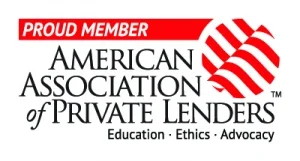
Real estate investing often seems like an unreachable dream for students. After all, juggling tuition, living expenses, and other financial obligations might make owning property feel out of reach. However, with the right knowledge and approach, students can tap into real estate opportunities that may provide long-term financial benefits. Are you a student curious about diving into the world of real estate? Let’s break down the essentials of real estate financing and how it works specifically for student investors.
What Is Real Estate Financing?
Real estate financing refers to the methods and resources individuals use to secure the funds required to purchase, maintain, or develop properties. For student investors, this might sound daunting, especially if you’re dealing with limited credit history or student loans. But don’t worry—financing real estate doesn’t always mean having a mountain of cash or perfect credit.
In essence, financing is about leveraging funds you might not currently have to acquire an asset that could generate returns over time. Think of it like borrowing a ladder to reach higher fruit on a tree—only in this case, the “fruit” is potential rental income or property appreciation. The key is understanding the financing options available and how to make them work for your situation.
Why Should Students Consider Real Estate Investing?
You might be wondering, “Why would a student get involved in real estate when there’s already so much to juggle?” It’s a fair question. But real estate investing offers unique benefits that make it worth exploring, even if you’re still in school. Let’s take a closer look at some of the reasons. One of the most significant advantages of starting as a student is time. The earlier you start, the longer you have to benefit from compounding wealth through property appreciation, rental income, and tax advantages. Think about it: what if you owned a property in your college town that pays for itself through rent? By graduation, you could already be on the path to financial independence.
Having an extra source of income as a student can be a game-changer. Real estate offers the potential for passive income streams, especially if you’re able to rent out rooms or units. This can help cover your living expenses, tuition, or even build savings for future investments.
Real estate investing teaches valuable lessons in budgeting, negotiation, and financial planning. As a student, you’re already in a learning mindset, so why not add real-world investing skills to your toolkit? Plus, this experience can set you apart when applying for jobs or seeking entrepreneurial opportunities.
How Students Learn Financial Literacy and Investing in College
Students across colleges and universities are increasingly being introduced to financial literacy and investing as a crucial part of their education. Many institutions now offer dedicated courses or programs to teach students how to manage their finances, understand credit, and make informed investment decisions. For instance, the University of Pennsylvania, through its renowned Wharton School of Business, provides courses on personal finance and investment management, preparing students for real-world financial challenges.
Similarly, Harvard University offers a course called “Financial Literacy: Managing Your Money for Long-Term Success,” which helps students understand topics such as budgeting, investing, and retirement planning. Beyond traditional coursework, institutions like Indiana University and the University of California, Berkeley, also integrate financial literacy workshops and seminars into their student programs, fostering a culture of financial awareness.
Moreover, students tasked with writing research papers, essays, and case studies on these topics often turn to online academic assistance essay writers at EduBirdie for support. For example, finance students may use EduBirdie’s services to craft detailed essays on subjects such as “The Role of Compound Interest in Wealth Accumulation” or “The Impact of Cryptocurrency on Modern Investment Strategies.” This allows students to focus on understanding the complex theories behind financial literacy while ensuring their academic writing meets high standards. By combining formal education with practical resources and academic writing assistance, students are not only gaining valuable financial knowledge but are also better equipped to articulate and apply these concepts in their future endeavors.
Financing Options for Student Investors
If you’re ready to dive into real estate but don’t know where to start with financing, don’t worry. Students may not have access to traditional resources like high-income or established credit, but there are still plenty of ways to fund a property investment. Let’s explore some options:
Federal Housing Administration (FHA) loans are a popular option for first-time buyers. These loans allow you to purchase property with as little as 3.5% down, making them accessible for students with limited savings. While FHA loans are typically used for primary residences, you could potentially purchase a duplex or triplex, live in one unit, and rent out the others. For students with supportive families, having a parent or guardian co-sign on a loan can help you qualify for financing. Co-signers with strong credit and income can provide the backing lenders look for, increasing your chances of approval. Just make sure you and your co-signer have a clear understanding of responsibilities and expectations.
Teamwork makes the dream work, right? Partnering with other students, friends, or investors can help spread the financial burden and reduce risk. For example, you and a group of classmates could pool resources to buy a property near campus, splitting rental income and expenses. If traditional lenders aren’t an option, consider private loans or real estate crowdfunding platforms. Private lenders are often more flexible with credit and income requirements, while crowdfunding platforms allow you to invest smaller amounts in larger projects.
House hacking involves buying a property (often with financing like an FHA loan), living in part of it, and renting out the rest. This strategy allows you to generate income while potentially covering your mortgage. For students, this might look like buying a small multi-unit property and renting it to fellow students.
Tips for Getting Started
Ready to take the plunge? Here are some practical tips to help you get started with real estate investing as a student:
- Educate Yourself: Read books, watch videos, and listen to podcasts about real estate investing. The more you know, the more confident you’ll feel in making decisions.
- Start Small: Consider investing in smaller, more affordable properties before scaling up. This could be a single-room rental or a small duplex.
- Network: Connect with real estate agents, investors, and lenders in your area. You’d be surprised how many people are willing to share advice or mentorship.
- Save Aggressively: Set aside part of your income, scholarships, or grants for your investment fund. Every little bit helps when it comes to securing a down payment.
- Leverage Technology: Use apps and platforms to research properties, analyze rental income potential, and track your finances.
Real estate financing might seem intimidating at first, especially for students juggling multiple responsibilities. But with determination, creativity, and a willingness to learn, it’s entirely possible to break into the market as a student investor. Whether you’re looking to build wealth, generate passive income, or gain practical financial skills, real estate investing offers opportunities that could shape your future.
Remember, the key is starting where you are with what you have. Explore your options, network with others, and don’t be afraid to think outside the box. Who knows? The property you invest in today might just be the foundation for your financial success tomorrow. Ready to take the first step? The world of real estate is waiting!


